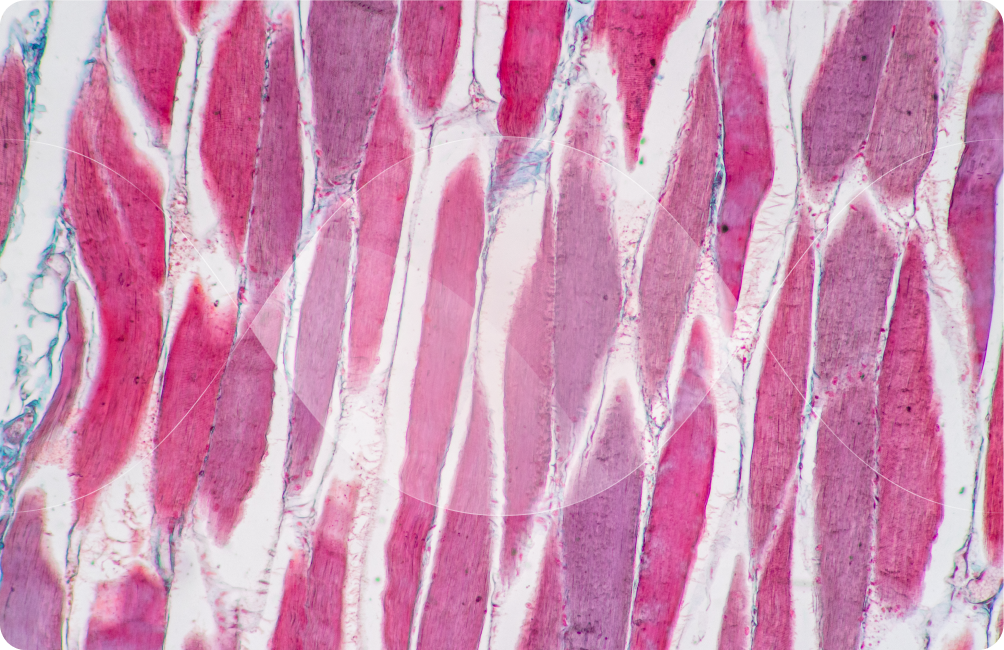Personalized medicine in Duchenne muscular dystrophy

Duchenne muscular dystrophy is an inherited disorder that is characterized by progressive muscle degeneration, leading to loss of function and premature death. The global prevalence of DMD is approximately 19.8 per 100,000 live male births. As our understanding of the genetic and molecular underpinnings of DMD deepens, so too does the potential for highly personalized treatments that are tailored to individual genetic profiles.
Pathology and genetics of DMD
The underlying pathology of DMD impacts the function of a cytoskeletal protein, dystrophin, that is essential for muscle fiber integrity. DMD follows an X-linked recessive inheritance pattern, with thousands of distinct mutations identified in the DMD gene. These mutations result in varying degrees of functional disruption to dystrophin, ranging from complete absence of the protein to the production of truncated or dysfunctional forms.
Various genetic modifiers have been found to affect disease severity and treatment response. Variants in genes such as SPP1 and LTBP4 have been associated with differences in progression and steroid responsiveness, helping to explain variability even among patients with the same mutation. These modifiers not only inform prognosis but may also serve as future therapeutic targets.
Exon skipping: precision in action
Exon skipping therapy has emerged as a personalized treatment strategy for DMD. Multiple ASOs have been approved by the FDA, such as eteplirsen (exon 51, Sarepta Therapeutics), golodirsen (exon 53, Sarepta Therapeutics), and viltolarsen (exon 53, NS Pharma). Each of these is tailored to specific deletions in DMD. These therapies aim to restore the reading frame and enable production of a truncated but partially functional dystrophin protein. While generally well tolerated with weekly intravenous administration, their clinical benefit remains modest due to low dystrophin expression levels in muscle tissue. Long-term efficacy is still under investigation, and strategies to enhance tissue delivery are under development.
Gene therapy using adeno-virus associated (AAV) vectors offers another promising avenue. The most advanced candidate, delandistrogene moxeparvovec-rokl (Elevidys, Sarepta Therapeutics), delivers a micro-dystrophin gene and received FDA accelerated approval in 2023 for ambulatory patients with confirmed DMD mutations. Clinical trials have shown successful gene transfer and dystrophin expression, with ongoing confirmatory studies including the ENVISION trial. However, after the death of a second patient in June 2025 due to acute liver failure, ENVISION was paused to re-evaluate the study protocol, with a specific focus on increasing immunosuppression in non-ambulatory participants receiving the therapy.
Other gene therapy products such as SGT-001 (Solid Biosciences) and PF-06939926 (Pfizer) are in clinical trials, though concerns remain around immune responses, durability of expression, and limitations on redosing. Ataluren (PTC Therapeutics), an oral read-through drug for nonsense mutations, received conditional EMA approval in 2014 but failed to meet primary endpoints in multiple randomized trials. Subgroup analyses suggested benefits in patients with intermediate levels of function, and post-marketing registries have reported extended ambulation. However, the EMA recommended non-renewal of its authorization in 2024 due to insufficient confirmatory evidence.
Looking forward: a future of tailored therapies
The journey toward effective, personalized therapies for DMD is marked by hope and hurdles. As the field moves forward, combining insights from genomics, transcriptomics, and patient-reported outcomes will be key to refining treatment approaches. Safety monitoring, especially in gene therapy, will remain paramount.
While there is no cure yet, the landscape of DMD therapy has transformed dramatically in recent years. With continued innovation and patient-focused research, a future with more effective and individualized treatment options is within reach.
For a deeper look at how precision medicine is being applied to Duchenne muscular dystrophy (DMD), spinal muscular atrophy (SMA), and ALS, read the full report here.
